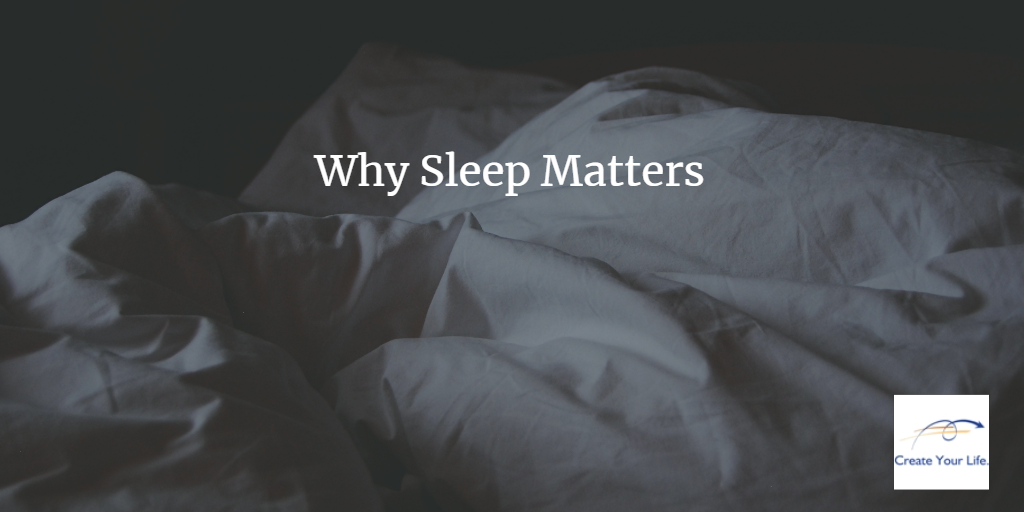Research points to links between poor sleep and ill health. Adequate sleep is one of the fundamentals of the good health which is essential for us to flourish and to live a life of well-being, meaning, and purpose.
TheExceleratedLife.com

Beware This Day
Did you know there is a specific day of the year when you are 24% more likely to have a heart attack? Nearly 8% more likely to die in a car crash? And around 6% more likely to be seriously injured in a workplace accident? [Pepitone]
Are you curious to know when that day is? It’s the Monday following the switch to Daylight Savings Time in the Spring. [Pepitone]
And it isn’t just the effects of heart attacks, accidents, and death that increase. We are more likely to experience anxiety, irritability, and depression plus an increase in the chances of having an ischemic stroke. [Pepitone]
The culprit? Research points to the loss of sleep caused by “springing forward”. [1]
Why Sleep Matters
It appears clear from the examples above that sleep is important to health and well-being. There are many theories about why sleep matters, but no definitive answers.
Here are some findings as to why sleep matters.
Sleep gives the body an opportunity to repair and rejuvenate itself. Studies have shown that “many of the major restorative functions in the body like muscle growth, tissue repair, protein synthesis, and growth hormone release occur mostly, or in some cases only, during sleep.” [“Why Do We Sleep, Anyway?”]
Sleep appears to be necessary for a healthy brain as well. Brain plasticity refers to the ability of the brain to re-wire and strengthen connections. This is integral to learning and the ability of the brain to heal itself. The importance of sleep to brain health can be seen in the effects that lack of sleep and sleep deprivation have on our ability to learn and perform a variety of tasks. [“Why Do We Sleep, Anyway?”]
Sleep matters because it is a fundamental part of physical and mental health.
Effects Of Too Little Sleep
When we look at the effects of not getting enough sleep, it becomes readily apparent why sleep matters.
When we suffer from a lack of sleep, we have trouble maintaining focus and attention. Perhaps you have seen this from your own experiences. Without adequate sleep, it is harder to take in and understand information. And as we saw earlier, our brains lose some ability to make the neural connections to properly process or recall information. [“Sleep, Learning, and Memory.”]
Our judgment becomes impaired – possibly a cause for the increase in accidents. We may be less able to assess a situation and choose the correct behavior. [“Sleep, Learning, and Memory.”]
In the short term, too little sleep “can affect judgment, mood, ability to learn and retain information, and may increase the risk of serious accidents and injury.” [“Consequences of Insufficient Sleep.”] Long term, a chronic lack of sleep leads to multiple health issues.
The Link Between Sleep And Health
As our opening story illustrated, even losing just one hour of sleep can disrupt our lives and have an ill-effect on our health. Over time, the effects of chronic sleep loss show up in several ways. These include contributing to obesity, diabetes, and heart disease, disrupting our immune systems, and even cutting our life expectancy. [“Sleep and Disease Risk.”] One major reason why sleep matters is this link between our sleep and our health.
“Considering the many potential adverse health effects of insufficient sleep, it is not surprising that poor sleep is associated with lower life expectancy,” write the authors of a sleep study from Harvard University. [“Sleep and Disease Risk.”] In fact, several large studies have revealed that sleeping five hours or less each night leads to an “increased mortality risk from all causes by roughly 15 percent.” [“Sleep and Disease Risk.”]
How To Sleep Better
We’ve explored some of the reasons why sleep matters. Now let’s look at ways to get more and better sleep.
We’ve discussed the fundamentals of eating, moving, and sleeping before, and you can get those tips here and here.
Here are some specific tips for better sleep from the Harvard sleep study. [“Twelve Simple Tips”]
(Please NOTE: I am neither a medical professional nor a licensed counselor. If you suffer from any health issues and/or before you make major changes in your health maintenance, consult with a qualified medical professional.)
Avoid caffeine, alcohol, and nicotine. No coffee or other drinks containing caffeine four to six hours before bedtime. Smokers should avoid smoking close to bedtime. And while alcohol can bring on sleepiness, it decreases sleep quality. Limit yourself to one or two drinks, and don’t drink alcoholic beverages within three hours of bedtime.
Maintain a sleep-inducing environment in your bedroom. Quiet, dark, and cool is how you want your bedroom to be. Limit the amount of light in the room as much as you can. If you are bothered by external noise, try using a white-noise machine. And keep your nighttime temperature between 66 and 68 degrees, if you can.
Establish a sleep routine. Having a relaxing routine helps your body prepare for and “know” that it’s time for sleep. Dim the lights. Stay away from your smartphone and computer screens. The short-wavelength blue light emitted from laptop screens, smartphones and tablets interferes with the body’s release of melatonin. [Walker] Some people like a relaxing bath before bed. Find a routine that relaxes you and lets your body know it’s time to sleep.
Use your bedroom for only two things. Use your bedroom only for sleep or sex. If you’re not sleepy (and you aren’t having sex), don’t lie in bed awake. Go to another room and find something relaxing, like reading or listening to soothing music. And keep the lights low.
Maintain a consistent sleep schedule. Going to bed and getting up at about the same time gets your body used to falling asleep, so you’re less likely to lie awake after you go to bed. Decide what time you want to get up, then subtract 8 or 9 hours from that. (Remember, for 8 hours of sleep, you’ll need to be in bed for about 9 hours.) This gives you the time you should be in bed. Follow this sleep schedule, even on weekends and holidays.
Exercise early in the day. Exercise helps promote sound sleep, but only if done earlier in the day, no more than three hours before bedtime. The boost in cortisol, which makes you more alert, can interfere with sleep when you exercise late in the day. Plus early morning workouts appear to give a bigger boost to metabolism, helping with weight loss and maintaining glucose levels. [Cimons]
Eat a smaller dinner. Sleep and digestion don’t play well together. So, eat at least three hours before bedtime; four is better.
Improvements From Getting More Sleep
If you’re still wondering why sleep matters, consider these benefits from getting sufficient sleep. [“Get Enough Sleep.”]
- You get sick less often.
- You’re more likely to maintain a healthy weight.
- You lower your risk for serious health problems, such as diabetes and heart disease.
- You’ll reduce stress and improve your mood.
- You can think more clearly and do better in school and at work.
- You’ll get along better with people.
Sleep – an Excelerated Fundamental™
While we may not know definitively how or why sleep matters, [“Why Do We Sleep, Anyway?”] we can easily see the link between poor sleep and ill health and the benefits accrued from getting enough good sleep. Adequate sleep is one of the fundamentals of the good health which is absolutely essential for us to flourish and to live a life of well-being, meaning, and purpose.
Remember that small, incremental improvements, taken step by step, lead to massive improvements over time. Focus on the fundamentals to maintain a strong foundation for your life. That is embracing the Excelerated Life™!
Excelerated Fundamentals™ — perfecting basic self-care practices — is one step in creating your Excelerated Life™, a life of flourishing and well-being, and a life of meaning, purpose, and service.
Read more about the Excelerated Life™.
Footnotes:
[1] While lack of sleep may not be a direct cause, according to Dr. Chris Winter, author of The Sleep Solution, it can exacerbate underlying conditions. [Pepitone]
Resources:
Cimons, Marlene. “What’s the best time of day to exercise, morning or evening?” The Washington Post. The Washington Post, July 21, 2019. Web. February 12, 2021.
https://www.washingtonpost.com/health/whats-the-best-time-of-day-to-exercise-morning-or-evening/2019/07/19/b202a674-9f50-11e9-9ed4-c9089972ad5a_story.html
“Consequences of Insufficient Sleep.” Healthy Sleep. The Division of Sleep Medicine at
Harvard Medical School, December 18, 2007. Web. January 23, 2021.
http://healthysleep.med.harvard.edu/healthy/matters/consequences
“Get Enough Sleep.” My Health Finder. U.S. Department of Health and Human Services,. Web. January 24, 2021.
https://health.gov/myhealthfinder/topics/everyday-healthy-living/mental-health-and-relationships/get-enough-sleep
Pepitone, Julianne. “Daylight saving time: 4 surprising health effects of ‘falling back’.” Know Your Value. Know Your Value, November 2, 2019. Web. January 24, 2021.
https://www.nbcnews.com/know-your-value/feature/daylight-saving-time-4-surprising-health-effects-falling-back-ncna929546
“Sleep and Disease Risk.” Healthy Sleep. The Division of Sleep Medicine at
Harvard Medical School, December 18, 2007. Web. January 23, 2021.
http://healthysleep.med.harvard.edu/healthy/matters/consequences/sleep-and-disease-risk
“Sleep, Learning, and Memory.” Healthy Sleep. The Division of Sleep Medicine at
Harvard Medical School, December 18, 2007. Web. January 23, 2021.
http://healthysleep.med.harvard.edu/healthy/matters/benefits-of-sleep/learning-memory
“Twelve Simple Tips to Improve Your Sleep.” Healthy Sleep. The Division of Sleep Medicine at Harvard Medical School, December 18, 2007. Web. January 23, 2021.
http://healthysleep.med.harvard.edu/healthy/getting/overcoming/tips
Walker, Phd, Matthew. Why We Sleep. New York: Scribner, an imprint of Simon & Schuster, Inc., 2017
“Why Do We Sleep, Anyway?” Healthy Sleep. The Division of Sleep Medicine at
Harvard Medical School, December 18, 2007. Web. January 23, 2021.
http://healthysleep.med.harvard.edu/healthy/matters/benefits-of-sleep/why-do-we-sleep



4 Replies to “Why Sleep Matters”